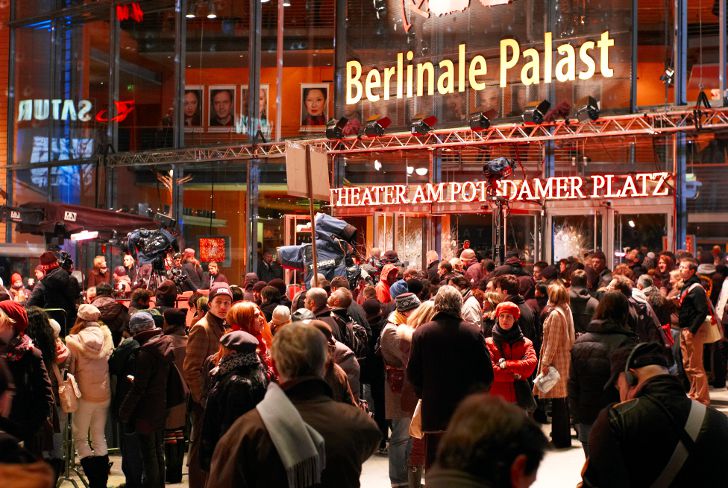The Berlin International Film Festival was founded in 1951 by the three World War II Allies – France, the United Kingdom and the United States – that administered West Berlin after the war. At the first edition of the festival winners were chosen by the German jury. From 1952 to 1955, winners were selected based on the results of the audience vote.
In 1956, the FIAPF officially accredited the Berlinale as an A-list film festival alongside the Cannes Festival (France), the Venice Film Festival (Italy) and the Film Festival Locarno (Switzerland). Since then, winners have been chosen by the international jury.
The international competition of the Berlinale is open to feature-length films which have not been released commercially outside their country of origin and have never been screened at any international film festival. About 25 films in the competition section compete for several prizes.
The top prize of the Berlin International Film Festival is the Golden Bear (Goldener Bär). The statuette indeed depicts a bear, the heraldic symbol of Berlin featured on both the city’s coat of arms and flag. It was created by the German artist and sculptor Renée Sintenis. The Golden Bear is awarded to Best Feature Film. One more Golden Bear is awarded to Best Short Film by the international short film jury. There’s also the Honorary Golden Bear presented for lifetime achievement.
The second award at the Berlinale, the Silver Bear (Silbener Bär) is presented for individual achievements. It is awarded in several sections such as Grand Jury Prize, Alfred Bauer Prize, Best Director, Best Actress, Best Actor, Best Screenplay, Outstanding Artistic Contribution.
Other awards at the Berlin International Film Festival are awarded by independent juries. They include the Ecumenical Jury, the FIPRESCI Jury, the Guild of German Art House Cinemas, the International Confederation of Art House Cinemas (CICAE), the German branch of Amnesty International, and others. The festival’s Teddy Award is regarded as the most prestigious queer film prize in the world, its is presented to LGBT-themed films.
Alongside the international competition and short film competition (Berlinale Shorts), the program of the festival includes a number of non-competitive sections such as Panorama, Forum, Generation, Perspektive Deutsches Kino, Berlinale Special Retrospective, and Homage. The Berlinale also hosts the European Film Market which is one of the world’s three largest film markets.
The principal venue of the festival is Berlinale Palace located at Potsdamer Platz. All competition premieres are screened here. Other venues are spread throughout the central districts of Berlin.

Photo by Maharepa




